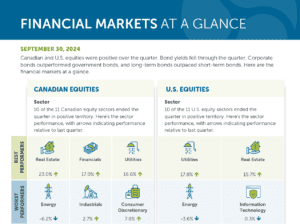Fix the Life Distribution Pipes: Bestow's Lena Chukhno – ThinkAdvisor

What You Need to Know
Chukhno helped JPMorgan Chase expand a retirement plan program for smaller employers.
She built the student loan refinancing business at Earnest.
Now, she sees COVID-19 favoring the life companies with the best tech.
Lena Chukhno says the COVID-19 pandemic has favored the efficient.
She is the new chief revenue office at Bestow, and she is trying to help the company benefit from its position as a high-tech insurance technology startup.
Bestow is a 6-year-old, Dallas-based company that sells life insurance online. Its list of backers includes Sammons Financial’s North American Company for Life and Health Insurance and Peter Thiel’s Valar Ventures.
Chukhno grew up in Ukraine. She earned a master’s degree in finance from Kyiv National Economics University, and a second master’s degree, in business administration, from INSEAD.
She started out as a tax consultant at PwC, then joined McKinsey & Co. as a business analyst.
JPMorgan Chase brought her in to promote a 401(k) program aimed at small employers.
She then oversaw strategy for a student loan refinancing program at Earnest — a California-based financial services startup — before going to work for Bestow, last month, just weeks after Russia invaded Ukraine.
Chukhno has been getting used to a new job, recruiting a vice president of business development for Bestow, and working with colleagues to find medical supplies for Ukraine.
We asked Chukhno about her view of the market she has just entered.
1. What sales and marketing strategies seem to have been working especially well, or especially poorly, over the past year?
We have seen a rise in sales and marketing models over the past year that are geared towards generating repeated engagement, cross-sell and upsell.
These models are born out of growth strategies to deliver superior value to customers: Growth leaders who shaped their strategy around building long-term relationships with their customers and clients are winning.
This trend supports the explosive growth of embedded products in financial services, where companies with a loyal customer base quickly stand up new products and satisfy the broader suite of their customer needs.
Relationship pricing, lifecycle marketing, and in-platform cross-sell are all great examples of growth levers that were effective in the past couple of years as they reduce the cost of acquisition and allow companies to pass more value to their customers.
Tactics like expensive sponsorships that are unrelated to your business or buying naming rights for stadiums or blowing millions on Super Bowl ads have been less and less effective, at least in fintech.
Due to COVID, the transition to using digital growth channels accelerated.
And even though we are “going back to normal” and regaining access to in-person sales and event marketing, I don’t see a pullback from digital and technology-enabled channels.
While many companies were initially forced to change their sales and marketing approach due to COVID, they voluntarily are opting to keep most of the new technology enhancements, as a way to keep their growth machines efficient and pass additional value to their consumers.
2. What effect, if any, have you experienced as a result of the COVID-19 pandemic and the recent upheaval in Europe? What have you learned from that?
COVID disrupted financial services in a couple of ways, initially by forcing a lot of instability on financial markets that affected various fintechs.




